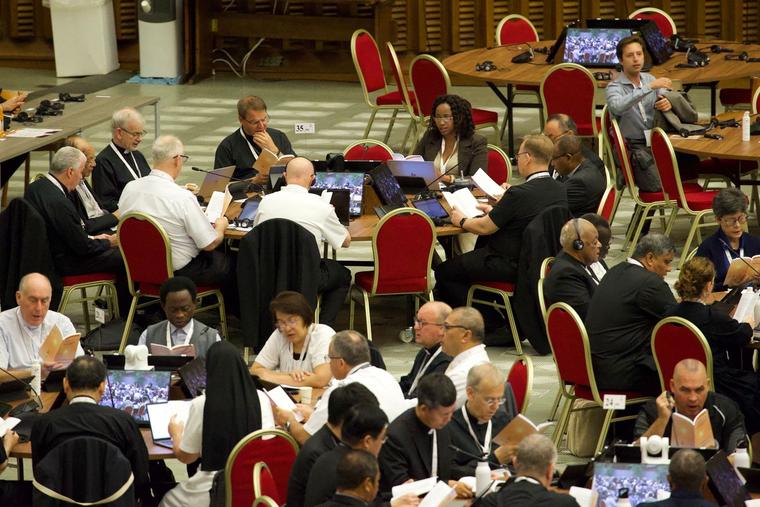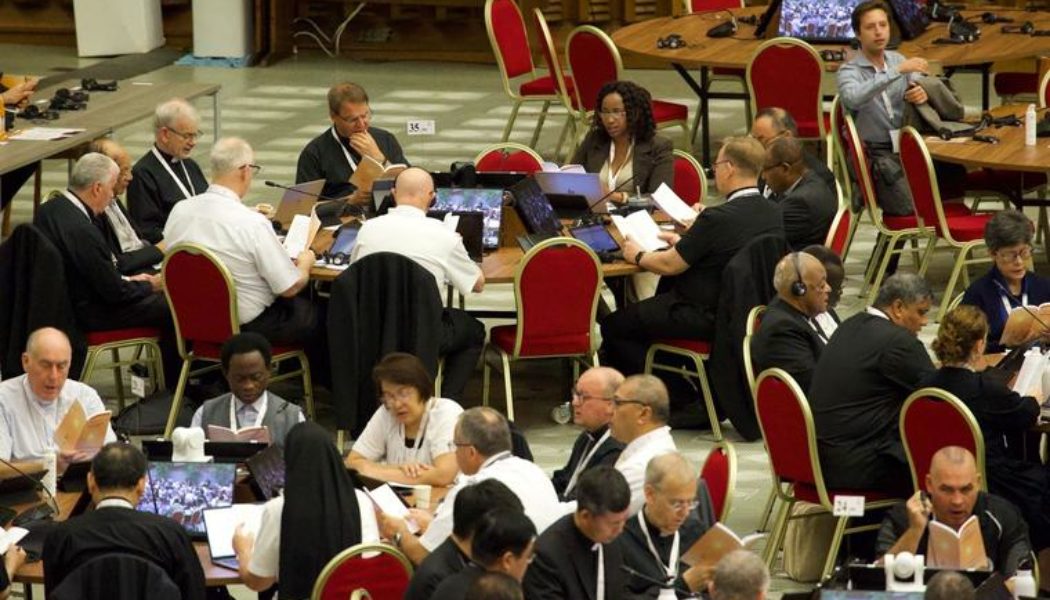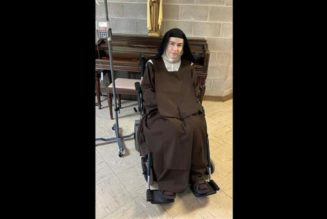
VATICAN CITY — Outside the closed doors of Paul VI Hall, indications are that Synod on Synodality participants are divided on a host of issues, from what pastoral care for same-sex-attracted people should look like to whether the synod’s methodology for discerning God’s will is even sufficiently grounded in Catholic teaching.
But there seems to be something that all 365 voting members can find some common ground on: They’re all tired.
In fact, a general sense of fatigue is usually the first topic brought up during any exchange with a participant in the Synod on Synodality assembly, which is nearing completion of its third week in Rome.
One participant shared that the frequent periods for silent prayer that intersperse the synod’s proceeding are now appreciated as much as opportunities to simply close one’s eyes and let their minds rest for a bit. Another member, commenting on a recent scheduling change that gives participants the afternoons of this coming Monday and Tuesday off, said that synod participants were grateful for any opportunity to rest they could come by at this point.
The reality was even acknowledged by Cardinal Jean-Claude Hollerich, the synod’s relator general, in remarks he gave to the whole assembly this past Wednesday.
“I think we all agree when I say that we are tired,” said the Luxembourgish cardinal, at the start of the assembly’s engagement on yet another “module,” this one focused on “participation, governance and authority.”
The reason why synod participants are so tired is apparent. At a synod that has touted itself as more expansive and more participatory than ever before, the days are necessarily, long, full and intense.
Unlike past universal synods in Rome, which have focused on a specific topic such as “New Evangelization” or “The Family,” participants at this year’s gathering are being asked to “reimagine” the Church in a synodal key. The ambition of the project is reflected in the instrumentum laboris of this month’s synodal assembly. Instead of a “first draft” for synod participants use as the basis for further discussions, the Synod on Synodality’sto working document includes 100-plus questions for discernment on everything ranging from how the Church can better accompany migrants to whether episcopal conferences should be given more doctrinal authority.
In addition to the plethora of topics to consider, there’s also a new methodology: “conversation in the Spirit.” The approach involves structured periods of listening, speaking and debate in small-group settings. These conversations alternate with “general congregations,” when representatives of the 35 tables present their group’s report, and others respond via “free interventions.”
While some have described the “conversation in the Spirit” methodology as enlivening, because of its more personal nature, others have noted that for just that reason, it can also take a lot out of you.
Demanding Days
“It’s been tremendously demanding of participants,” said Jesuit Father David McCallum, a facilitator at the synodal assembly whose role is to guide table discussions, of the synod’s proceedings. “This is a lot to ask.”
Synod participants aren’t in Paul VI Hall all day long. Proceedings typically don’t begin until 8:45 a.m., there is a sizable lunch break from 12:30-4 p.m., and things wrap up for the evening at 7:15 p.m.
But just because they’re not in assembly doesn’t mean synod members aren’t busy. Most participants begin the day with early morning Mass, followed by a commute to Vatican City from wherever they might be staying around Rome. Lunch time and the evening are also dominated by a variety of invite-only events and working meals, and participants also need to find time to prepare their interventions at the small-group or general congregation level. Then, of course, there’s the fact that most of the participants have significant responsibilities back home, such as governing a diocese, leading a religious congregation, or supporting their family.
Based off several conversations with synod participants, it’s not uncommon for members to be up by 6 a.m. and in bed after midnight.
Another possible contributing factor? The coffee situation. According to one participant, there are only two coffee machines servicing the group of nearly 450. And there are only two scheduled coffee breaks, one in the midmorning, the other in the midafternoon. This means if a participant missed their morning cup of joe at the religious house or seminary they’re staying at, they might have to make it through a whole “conversation in the Spirit” session or general congregation before they can get some needed caffeine.
In terms of scheduling, Father McCallum expects next year’s assembly to “be different.”
“There’ll be some real adjustments to pace things differently,” he said. “It’s been so very demanding. But I think we’ll learn as we go.”
Still, with one week left at this year’s assembly, the synod’s grueling workflow could have an impact on proceedings and outcomes.
Crucial Questions of Structure
Synod members are currently focused on the “processes, structures and institutions” necessary for “a missionary synodal Church” — a topic that one participant described as not particularly exciting.
But, as another pointed out, while questions of structures and processes might not be as “hot-button” as issues like women’s role in the life of the Church or the Church’s pastoral ministry to LGBTQ-identifying people, they actually may be the most crucial of the entire synodal assembly, as changes in structure and governance could lead to changes in how those issues are addressed.
Therefore, “now is not a good time to be tired,” the participant said, since it could lead to rushed agreements and overlooking important details on one of the most consequential themes at the assembly.
Father McCallum said that part of the facilitator’s role is to keep the group engaged when “they all kind of want to check out.”
“This can be a little bit of inspiration, a little bit of a sense of, ‘Listen, the end is in sight here, and we have an opportunity as a table to make a contribution to the whole.’”
Maybe it’s that kind of pep talk that’s needed to keep synod members focused as they finish their work over this next week. Or maybe it’s adding another coffee break.





